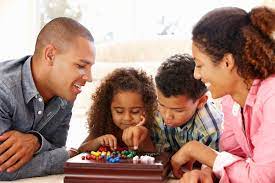How can parents control their anger towards their children?
Anger control for parents
If you are a parent and know how to manage anger healthily, you can help your children deal with their anger better. Anger is a natural emotion. It can be expressed in many ways. Sometimes anger can have a positive impact. Anger can motivate you to do something or help you stand up for what you believe in. Anger can also be dangerous.
If you are a parent and know how to manage anger healthily, you can help your children deal with their anger better. Children and parents both suffer from anger. It is important to manage anger to avoid its negative effects.
Anger can lead to mental and physical conditions. Anger can make certain conditions worse, such as heart disease or depression.
Children should feel safe and secure around their parents. If they feel angry, they may hide things from you or react in anger. You can prevent these behaviours from happening as a parent by learning healthy ways to manage anger.
How to spot anger
You might find it useful to learn the signs of anger before controlling your anger. These are:
- Tense feeling
- Breathing quicker than normal
- Facial flushing
- Sweating
- Tension around your shoulders
- Stomach-churning
- Your jaws and fists should be clenched.
Excessive anger can have devastating consequences.
Anger can have many negative consequences on your body and the lives of those around you. These are some of the consequences:
- Mental Health If you have anger buildup for a prolonged period, it can lead to serious mental health problems. These conditions could include depression and substance misuse.
- Relationships Losing control of your temper can cause damage to your relationship with your children. Sometimes, if a parent exposes a child to anger outbursts, it can lead to them feeling rejected and isolated.
- Health: Anger can have negative effects on the body. Anger has been linked to certain health conditions like heart disease, poor sleeping, high cholesterol, and weakening immune systems.
Relaxation techniques to control anger
These relaxation techniques can help you calm down anger if you feel it is growing.
- Imagine a clear image in your head.
- Repeating a phrase or word in your head
- Deeply breathe in and out.
Anger management strategies for parents
There are many anger management strategies that you can use to manage your anger. These strategies may help to ease the tension that can result from heated situations:
- Keep calm and listen. It would be best to remain calm to hear what your child has to say. Deep breathing can help you calm down. This can be especially helpful if the child is too close to you.
- Give a reason. Anger can distort your perspective. Your outlook may improve if you realize that your child isn’t making you mad.
- Don’t generalize situations. Recognize what your child is doing correctly, and not try to generalize their behaviour or make judgments based solely on what makes you angry.
- Don’t get defensive. Your children may make you mad by your actions. You might become defensive if you are subject to negative criticism. It is okay to feel like this, but it is best not to be defensive with your child. It is important to listen and understand your child’s feelings.
- Take a break. Give yourself some time to think about what’s causing you anger. This is especially helpful when you’re tired. You can take a break to help you deal with the situation better. This increases your chances of finding a solution.
- Daily exercise. This can help you to relax. Exercise can positively impact your mental and emotional health.
- Get professional help for mental health. Uncontrollable anger can indicate some mental health conditions. To determine if you have a mental health condition, seeking medical attention is a good idea. It is important to seek medical intervention to help you receive the right counselling and long-term solutions.
- Model behaviour. Children learn from parents by watching. It is normal to lose control over your anger. Talk to your child about this and apologize for your misguided reactions. Children learn to control their reactions when they experience this reaction.
- Humour can ease tension between you, your child and the world. Your child should not be negatively affected by humour.
How to deal with anger issues
Professional behavioural therapy can be helpful in anger management.
- Cognitive behaviour therapy ( CBT) is a psychological treatment for mental disorders such as anger problems. It can also help with conditions such as anxiety and depression.
- Parent Management Training (PMT). This approach teaches parents how to control their anger and manage it. Learn new techniques to deal with misbehaviour and how to use positive reinforcement. Instead of focusing on punishments for wrongdoings, the focus should encourage children to do good things.
If you are interested in professional anger management, ask your doctor or seek out licensed professionals.



